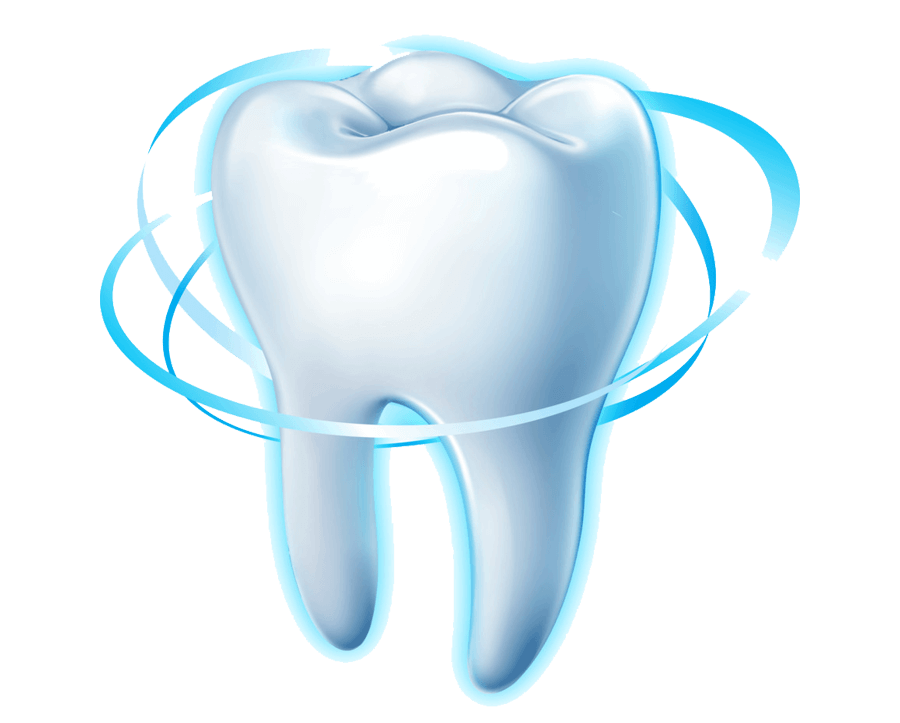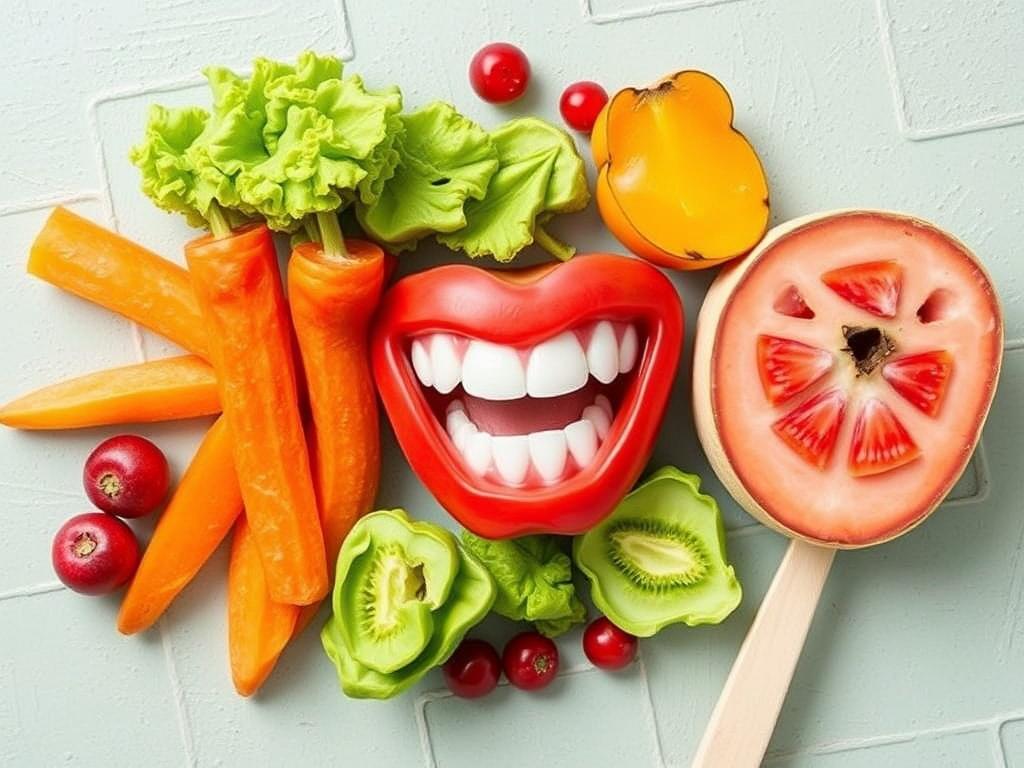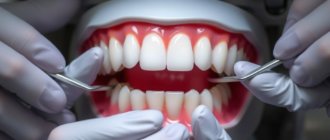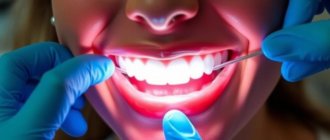Taking care of your teeth goes beyond just brushing and flossing. What you eat plays a massive role in maintaining strong, healthy teeth and gums. Imagine if the foods you consumed could naturally protect your enamel, fight cavities, and even help keep your breath fresh. The good news is, they can! Throughout this article, we’ll explore the best foods for healthy teeth, understanding how nutrition contributes to dental health, and give you practical tips to make your diet a tooth-friendly delight.
Содержание
- 1 The Connection Between Diet and Dental Health
- 2 Top Nutrients That Promote Healthy Teeth
- 3 The Best Foods for Healthy Teeth
- 3.1 Dairy Products: Calcium and Vitamin D Powerhouses
- 3.2 Leafy Greens and Vegetables: Vitamins and Fiber
- 3.3 Fruits Packed with Vitamin C and Antioxidants
- 3.4 Nuts and Seeds: Tiny but Mighty
- 3.5 Fish and Lean Meats: Protein and Essential Minerals
- 3.6 Green and Black Teas: Natural Cavity Fighters
- 3.7 Water: The Unsung Hero
- 4 Foods to Limit or Avoid for Better Teeth
- 5 Practical Tips for Eating for Healthy Teeth
- 6 Summary Table: Best Foods for Healthy Teeth and Their Benefits
- 7 Making a Sustainable Tooth-Friendly Diet
- 8 Conclusion
The Connection Between Diet and Dental Health
Your mouth is the gateway to your body, and what you chew and swallow has a direct impact on your teeth. The foods you eat influence the balance of bacteria in your mouth, the strength of your enamel, and the health of your gums. Sugary and acidic foods can cause tooth decay by feeding harmful bacteria and softening enamel, which leads to cavities. On the flip side, many foods contain vitamins, minerals, and natural compounds that protect, repair, and strengthen your teeth.
It’s important to look at diet as a key piece of your overall oral care routine. While brushing twice a day and flossing are essential, pairing these habits with nutrient-packed food choices offers lasting benefits for your smile.
Top Nutrients That Promote Healthy Teeth
Before we dive into specific foods, it’s useful to know which nutrients are especially valuable for dental health:
- Calcium: Strengthens the tooth enamel and supports bone health.
- Phosphorus: Works alongside calcium to rebuild and maintain tooth enamel.
- Vitamin D: Enhances calcium absorption and supports gum health.
- Vitamin C: Vital for gum tissue repair and preventing inflammation.
- Vitamin A: Helps maintain saliva flow and healthy mucous membranes.
- Antioxidants: Found in many fruits and vegetables, these compounds reduce inflammation and boost oral tissue health.
- Fluoride: Naturally occurring in some foods and water, fluoride strengthens tooth enamel and prevents decay.
Knowing these nutrients lets us make smarter food choices aimed at maximizing their benefits.
The Best Foods for Healthy Teeth
Let’s explore various foods categorized based on their dental benefits. These foods are easy to include in your daily meals and snacks, making oral health a natural part of your lifestyle.
Dairy Products: Calcium and Vitamin D Powerhouses
Dairy is one of the best sources of calcium and vitamin D, which are essential for strong teeth and bones. Milk, cheese, and yogurt all play an important role in neutralizing acids produced by bacteria in your mouth. Cheese, in particular, has been shown to stimulate saliva production, which helps wash away harmful acids.
Why Cheese Is a Top Tooth-Friendly Food
Not all cheeses are created equal when it comes to dental health. Hard cheeses like cheddar, Swiss, and Parmesan have higher calcium content and better teeth-protecting effects. Eating cheese after meals can help balance the mouth’s pH and protect enamel from acid damage.
Leafy Greens and Vegetables: Vitamins and Fiber
Dark leafy greens such as spinach, kale, and swiss chard are rich in calcium, folic acid, and vitamin C. These nutrients are vital for preventing gum disease and repairing oral tissues. Additionally, vegetables with high fiber content act as natural toothbrushes, scrubbing your teeth as you chew and boosting saliva flow.
Crunchy Veggies: Snap into Better Oral Health
Carrots, celery, and cucumbers are perfect examples of crunchy, hydrating vegetables that help clean teeth and stimulate saliva production. Chewing these veggies massages your gums and lowers the risk of cavities.
Fruits Packed with Vitamin C and Antioxidants
Fruits such as oranges, strawberries, kiwis, and blueberries bring vibrant colors and immense oral health benefits. Vitamin C strengthens gum tissue, helping your body fight off bacteria and inflammation responsible for gum disease. Antioxidants in berries also reduce oxidative stress in gums and soft tissues.
Natural Sweeteners vs. Sugary Snacks
While fruits contain natural sugars, their high nutrient content and fiber slow down sugar release, making them better for your teeth than processed sugary snacks. However, rinsing with water after eating citrus fruits helps neutralize acidity and protect enamel.
Nuts and Seeds: Tiny but Mighty
Almonds, walnuts, and sesame seeds are packed with calcium, phosphorus, and protein—all crucial for maintaining strong teeth. Their crunchy texture also helps remove food debris and plaque. Moreover, nuts contain healthy fats that reduce inflammation in gums.
Fish and Lean Meats: Protein and Essential Minerals
Fish such as salmon and mackerel are rich in vitamin D and omega-3 fatty acids. Vitamin D increases calcium absorption, while omega-3s help reduce gum inflammation and risk of periodontal disease. Lean meats provide phosphorus and protein, vital for tissue repair and bone strength.
Green and Black Teas: Natural Cavity Fighters
Tea contains catechins, organic compounds that reduce bacteria and acid production in the mouth. Green tea, in particular, has been extensively studied for its ability to lower plaque and prevent gum disease. Sipping unsweetened green or black tea could be a simple way to support your oral health daily.
Water: The Unsung Hero
Drinking plenty of water is essential for healthy teeth. Water flushes away food particles, keeps saliva flowing, and neutralizes acids. Drinking fluoridated tap water adds a protective element by strengthening enamel and preventing cavities.
Foods to Limit or Avoid for Better Teeth
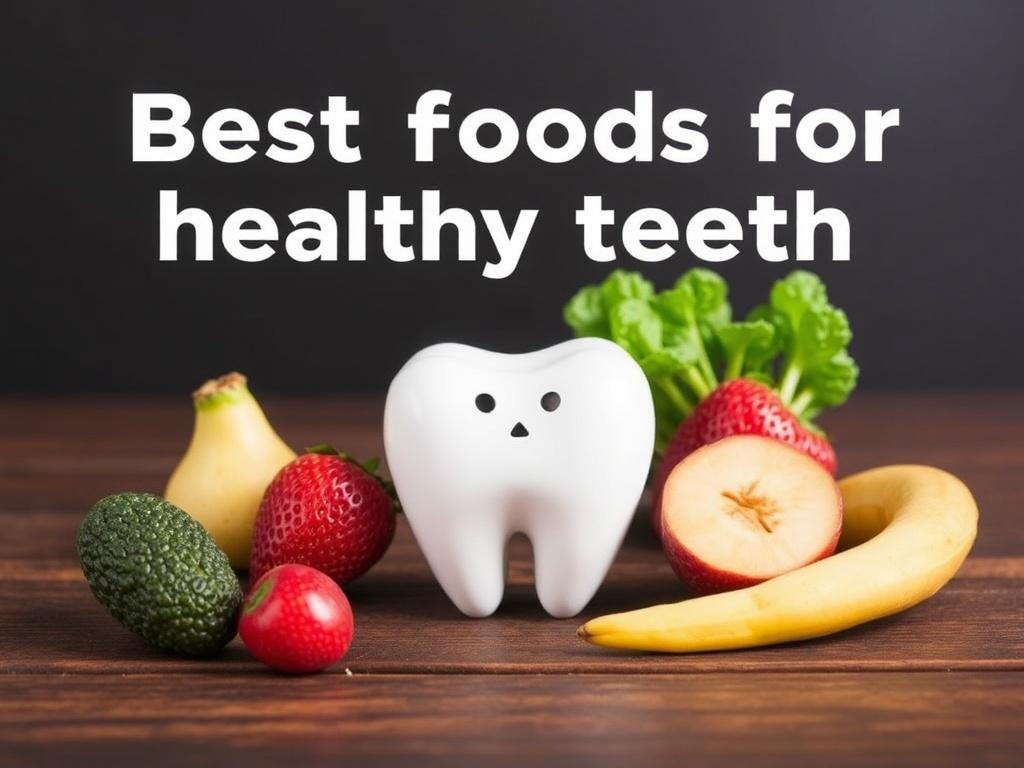
Just as certain foods nourish your teeth, others can cause harm if consumed excessively. It’s important to be mindful of what you eat and how often you consume potentially damaging items.
Sugary Snacks and Drinks
Candies, sodas, and sugary baked goods feed harmful bacteria that generate acid, leading to enamel erosion and cavities. Frequent snacking on sweets keeps acid levels high, increasing decay risk.
Sticky and Starchy Foods
Foods like dried fruits, chips, and bread can cling to teeth and harbor bacteria, causing prolonged acid attacks.
Acidic Drinks and Citrus Fruits
While citrus fruits offer vitamin C, their acidity in excess can wear down enamel. Similarly, energy drinks and fruit juices contain acids that erode teeth over time.
Practical Tips for Eating for Healthy Teeth
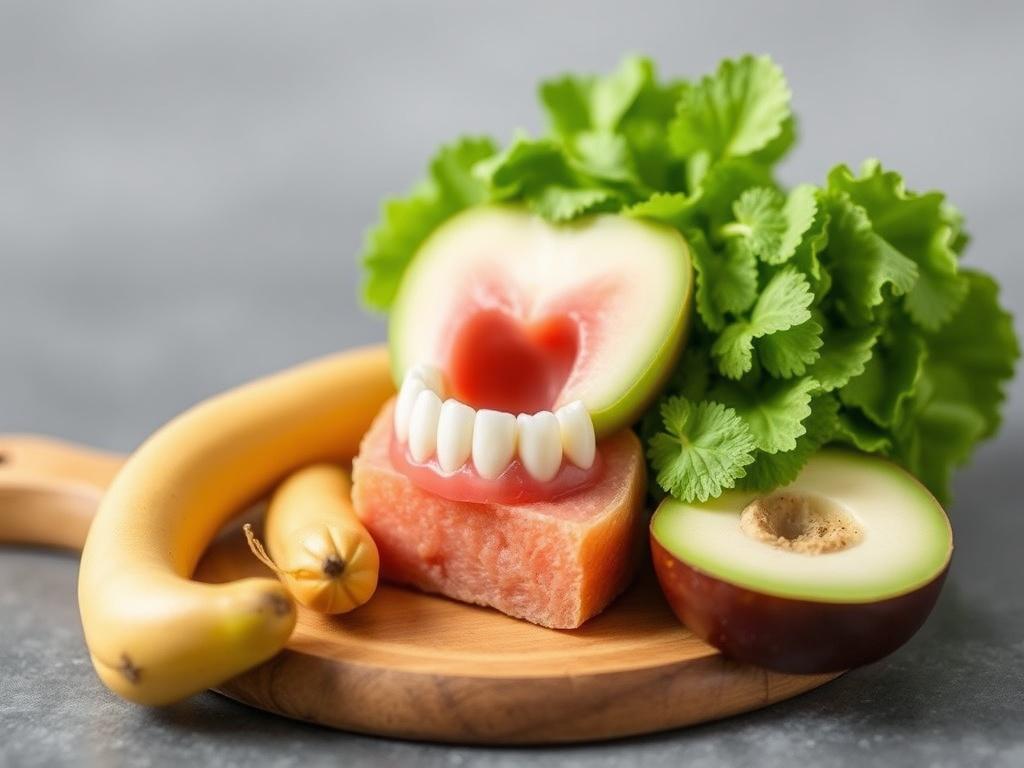
Incorporating best foods for healthy teeth into your diet is easier than you think. Here are some quick tips to get started:
- Eat a balanced meal with dairy, leafy greens, and lean proteins regularly to supply your teeth with essential nutrients.
- Snack on crunchy vegetables or nuts instead of sugary treats to stimulate saliva and clean teeth naturally.
- Rinse your mouth with water after eating acidic fruits or drinking sweetened beverages to neutralize acids.
- Incorporate green or black tea without sugar as a tooth-friendly beverage option.
- Limit sugary snacks to mealtimes, rather than grazing throughout the day, to reduce acid exposure.
- Chew sugar-free gum to promote saliva production when brushing isn’t possible.
Summary Table: Best Foods for Healthy Teeth and Their Benefits
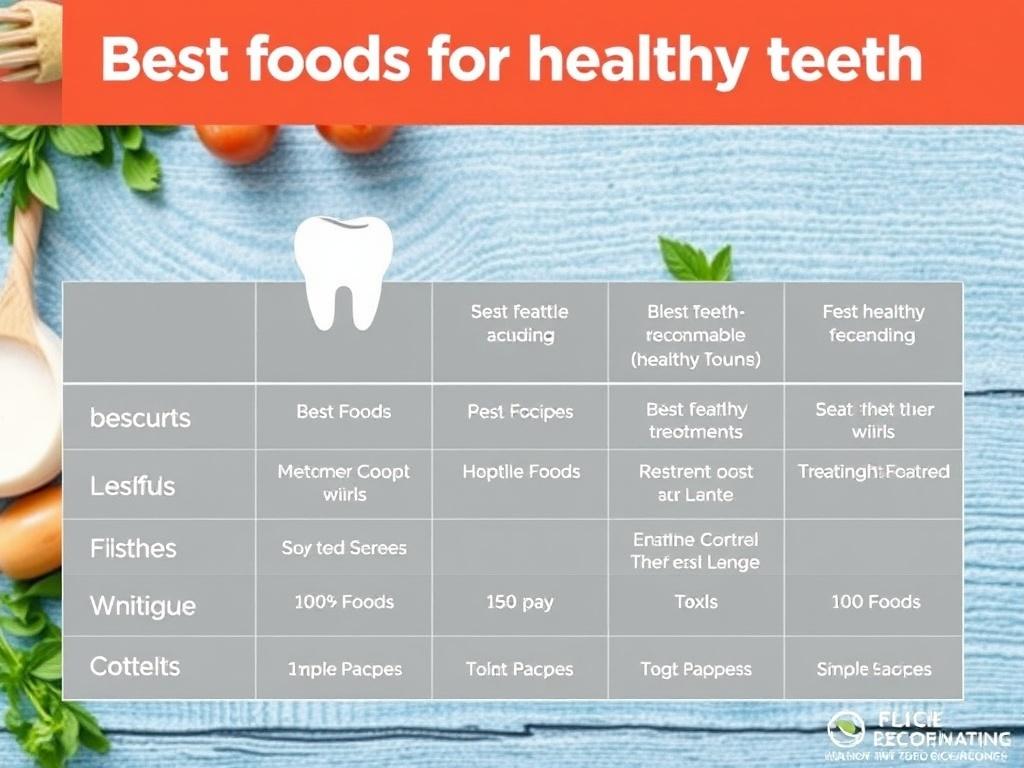
| Food Group | Examples | Key Nutrients | Dental Benefits |
|---|---|---|---|
| Dairy | Milk, cheese, yogurt | Calcium, Vitamin D, Phosphorus | Strengthens enamel, neutralizes acids, stimulates saliva |
| Leafy Greens | Spinach, kale, swiss chard | Calcium, Vitamin C, Folate | Supports gum health, maintains oral tissues |
| Crunchy Vegetables | Carrots, celery, cucumbers | Fiber, water | Cleans teeth, stimulates saliva flow |
| Fruits | Strawberries, oranges, berries | Vitamin C, antioxidants | Enhances gum strength, fights inflammation |
| Nuts and Seeds | Almonds, walnuts, sesame seeds | Calcium, Phosphorus, protein | Strengthens teeth, reduces gum inflammation |
| Fish and Meats | Salmon, mackerel, lean chicken | Vitamin D, Omega-3, Protein | Enhances calcium absorption, supports gum health |
| Teas | Green tea, black tea | Catechins (antioxidants) | Reduces oral bacteria, lowers plaque |
| Water | Fluoridated tap water | Fluoride, hydration | Flushes debris, strengthens enamel |
Making a Sustainable Tooth-Friendly Diet
The best foods for healthy teeth are part of an overall healthy lifestyle. By consistently choosing nutrient-rich foods and balancing them with good dental hygiene habits, you can protect your smile for years to come. Remember, oral health doesn’t have to be complicated or restrictive. It’s about making smart choices that nourish your whole body — and your teeth — naturally.
Start by adding one or two tooth-friendly foods each week. Experiment with new recipes featuring leafy greens, nuts, or fish. Swap sugary drinks for water or unsweetened tea. Notice how these small changes make your mouth feel fresher, your teeth stronger, and your smile brighter.
Conclusion
Your teeth deserve the best care not just from brushing, but from the foods you eat every day. Understanding which nutrients and foods support dental health empowers you to protect your smile in a delicious and natural way. Incorporate the best foods for healthy teeth like dairy, leafy greens, crunchy vegetables, fruits rich in vitamin C, nuts, fish, and even green tea into your routine. Pair these with good hydration and mindful eating habits to defend against decay, maintain strong enamel, and promote healthy gums. By nurturing your smile from the inside out, you set yourself on the path to lifelong oral wellness—and that’s a reason to smile confidently for years to come.
